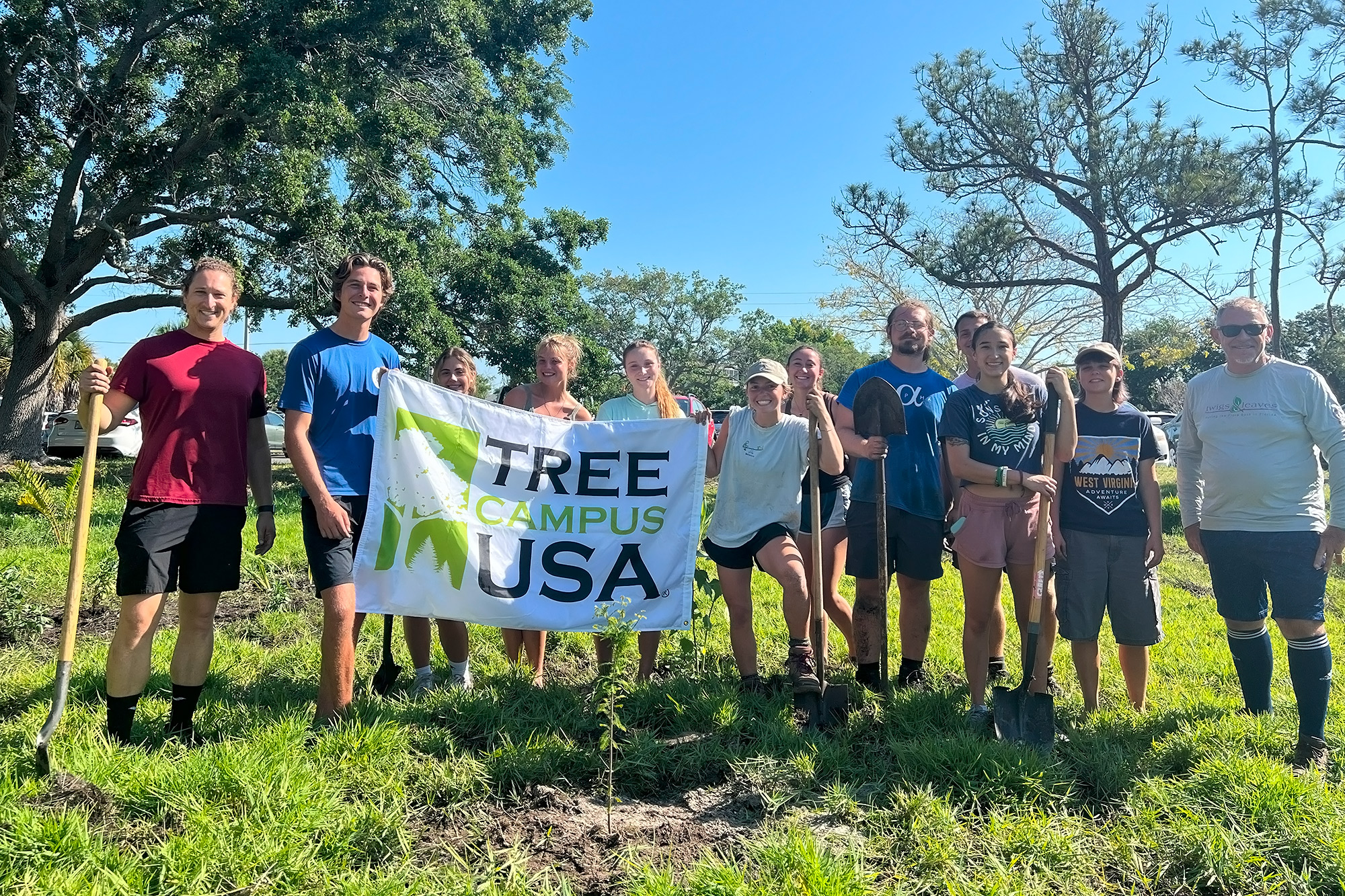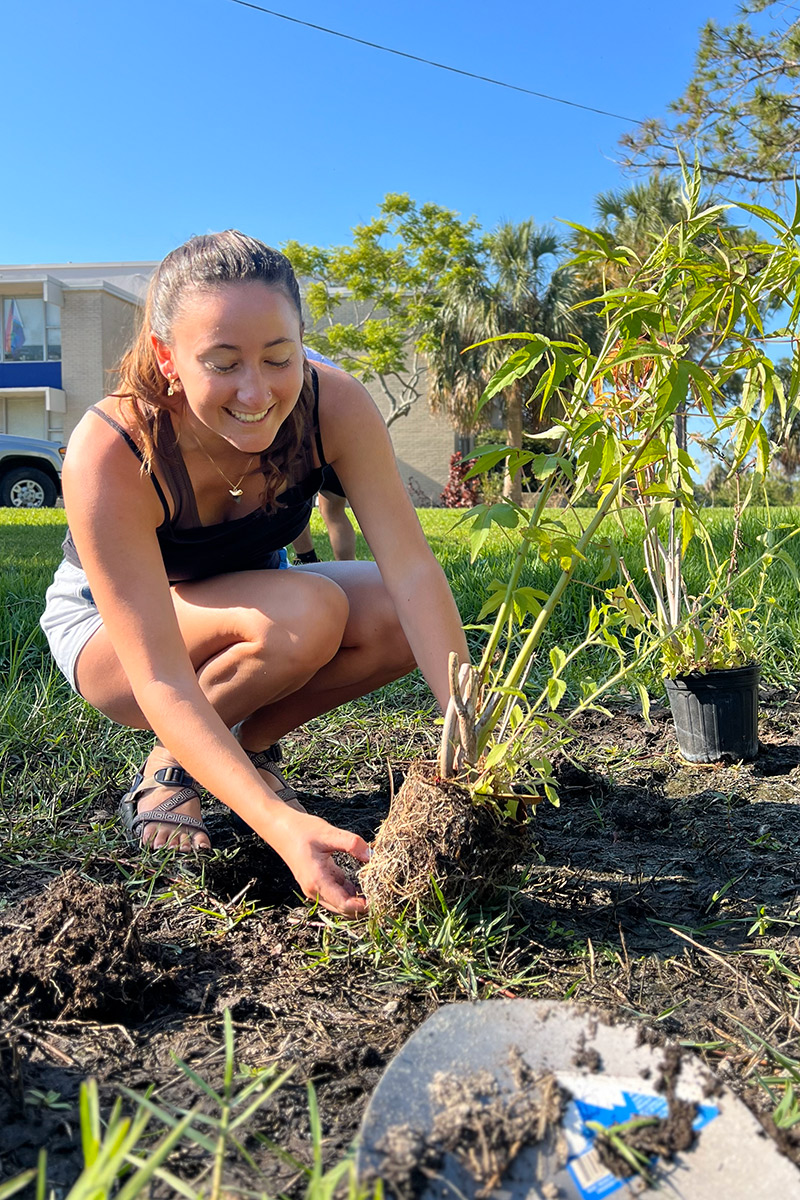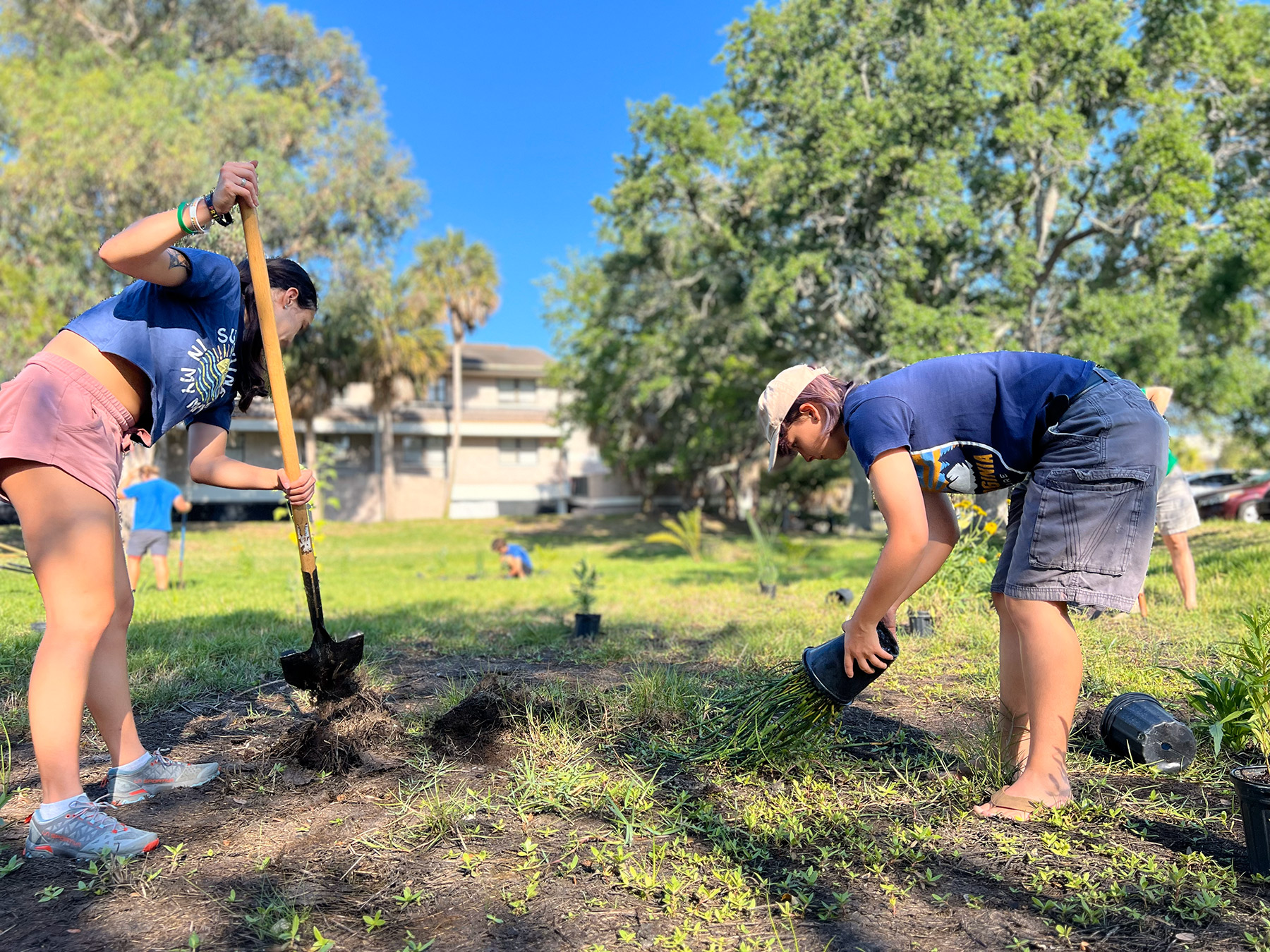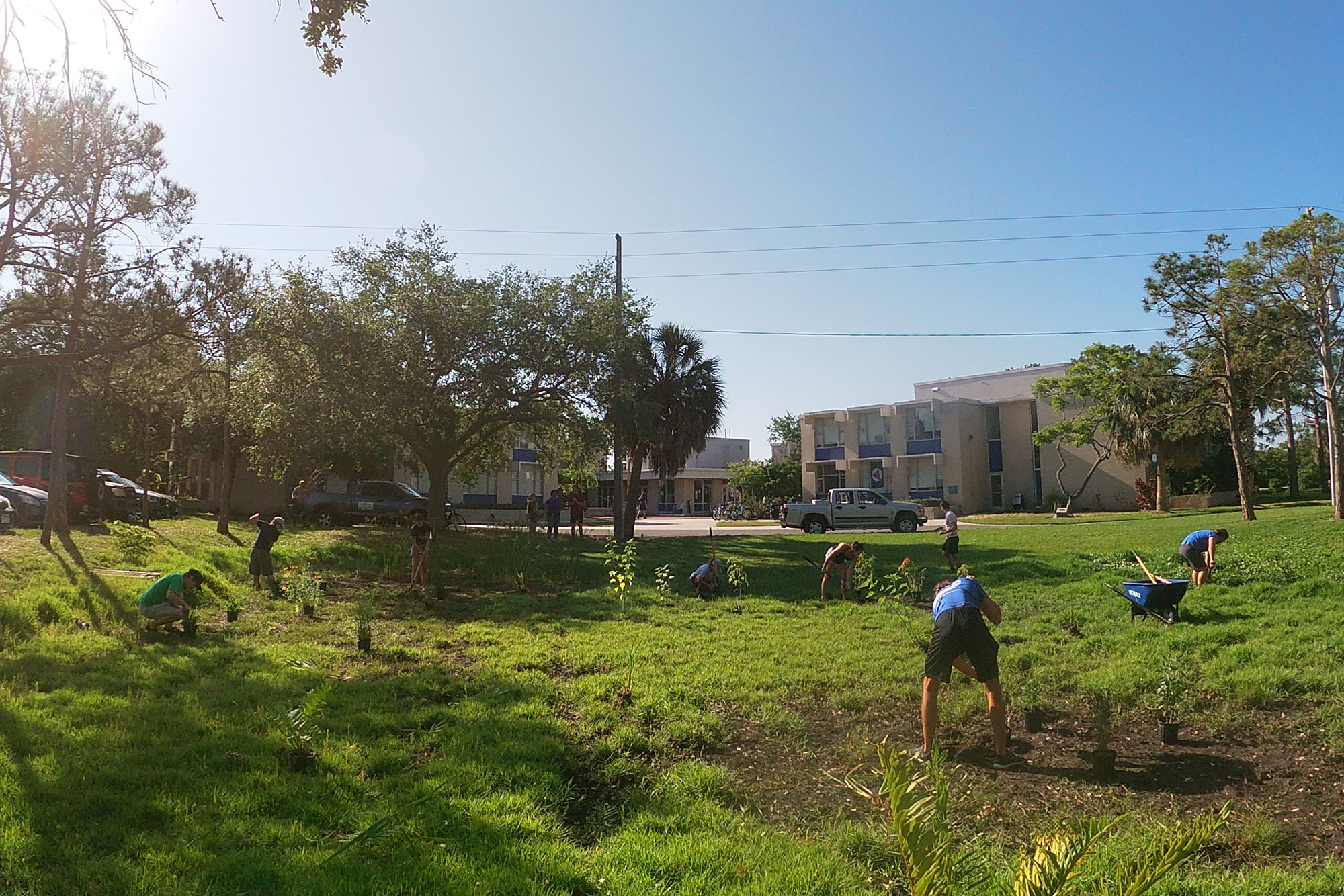As Earth Week came to a close on April 26, the Eckerd College Office of Sustainability sponsored the planting of a new wetland habitat in between the Zeta and Nu residential complexes.
Macy Beckman, a senior anthropology and environmental studies student from Charleston, South Carolina, is the Office of Sustainability intern this year. She’s been involved with sustainability at Eckerd since her first year—tackling roles in recycling, the Nu Bike Shop and the Eckerd College Community Farm.
Last year, grass in this swampy area grew very tall and provided habitat for rabbits and other critters. After maintenance workers mowed the grass, Macy was disappointed to see the bunnies displaced and wandering the parking lot. As an intern, she started a project to revitalize this area of campus, which is difficult to maintain.
She first contacted several committees and received formal approval to create a native wetland. With Eckerd’s longtime landscaping partner Twigs & Leaves, a St. Petersburg nursery that sources ecologically sustainable plant material, a small group of student volunteers worked to plant about 10 new native species. Michael Manlowe, the nursery’s owner, delivered 39 trees and plants—including blue flag iris, horsetail, pink mallow, pickerelweed, black-eyed Susan, sea-oxeye daisy, scarlet hibiscus, yellow canna, goldenrod, pink milkweed and leather fern.
“I can’t wait to see how pretty it will be!” Macy said while taking up a shovel. She hopes the wetland will become a populated habitat for birds.
Director of Sustainability Evan Bollier ’11 referred to this area as a “detention pond.” Which isn’t the same as a retention pond. When it rains, water from the bordering parking lot floods the grass, and heavy metals and other sediments are filtered out of the runoff. The water then travels through a culvert to Zeta Pond, where more sediment settles, and finally flows into Boca Ciega Bay.
Bollier explains that adding these native plants will aid in the filtering process, which is healthier for the bay ecosystems bordering Eckerd’s campus.
The planting process was made easier by patches of dirt left by dead grass that couldn’t handle the excess water after rainfall. These dirt beds provided the perfect place to introduce the new plants, all of which can survive in both wet and dry conditions, depending on the season.
This planting was part of Eckerd’s Arbor Day observance and campus tree-care plan, which contributes to the College’s recognition as a Tree Campus USA.
Prue Criscuolo, a junior marine science student also from Charleston, was one of the student volunteers planting in the detention pond. As she gently lifted a plant from its pot, she explained that playing in the dirt sounded like a great way to start her Friday.
“I always feel good about myself when I’m sweating,” Prue said. Planting the wetland also was a productive way for her to get service learning experience for the Marine Science Junior Seminar course.
In addition to the native plants, a couple of cypress tree saplings donated to the campus farm by Thomas Leonard ’12 were moved to the wetland. Bollier said they will thrive in the wetter environment provided by the detention pond. Students posed for a photo with one of the tiny trees, and they look forward to returning to see it big and tall years down the line.
















